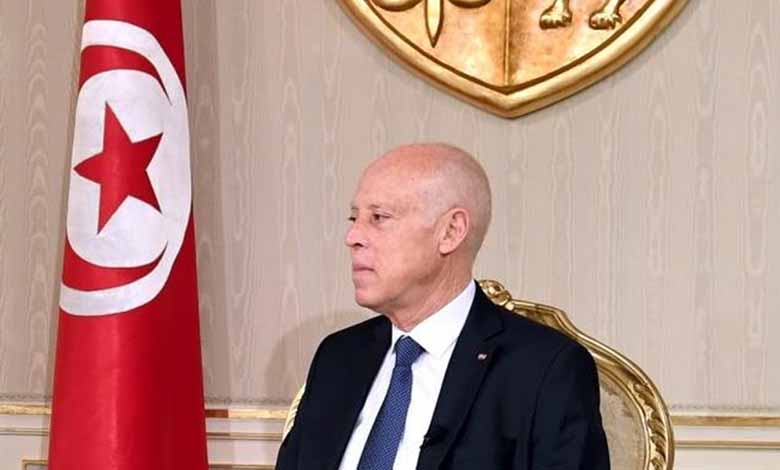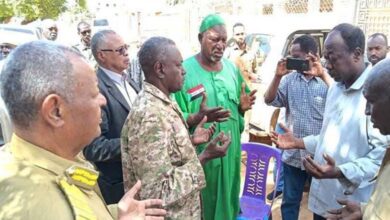‘A Brotherhood-Free Phase’: Tunisia’s Constitution Crucial Hour

Just hours before the draft of a new constitution is to be put to a referendum abroad on Saturday, Tunisia is preparing for a new phase free of the Brotherhood.
A new constitution, to be held on July 25 in Tunisia, ends a dark period in Tunisia’s history and closes the door to corrupt people, thieves and terrorists.
The new draft, which Tunisians will vote on, includes 142 articles and grants sweeping powers to the head of state, in contrast to the 2014 constitution, which provided for a hybrid semi-parliamentary system that served the interests of the Brotherhood and the corrupt.
On June 30th, the new draft constitution was published in the Official Gazette and amended on July 9th after Tunisian President Kais Saied acknowledged that the old version had a number of formal errors that required amendment and correction.
New Constitution
“The July 25 referendum will close the arc of political Islam and the Muslim Brotherhood in Tunisia and end the last black decade system that wreaked havoc in the country and tampered with the interests of Tunisians”, said Zouhair Maghzaoui, secretary-general of the People’s Movement.
Maghzaoui said that the new draft constitution spoke about the Higher Council for Education, Rights and Freedoms, in addition to Tunisia’s Arab-Islamic identity, as well as linking political democracy to social democracy.
He called for a “yes” vote to end the Brotherhood and open new horizons for the people and the state, explaining that the constitution can be passed in the first stage and amended later by parliament, which will be established after the legislative elections on December 17th.
On July 25, Secretary-General of the Movement of Tunisia Forward Abid Briki called on Tunisians to vote “yes” to the draft constitution.
Briki explained that this new constitution will be the decisive stage in the history of Tunisia and will establish a sovereign and democratic state that guarantees political and social dimensions and ends the mafia state, political and financial corruption, and terrorism.
He said the new constitution guarantees freedoms, the right to demonstrate, and the right to organize political parties, trade unions, and associations. It also establishes social justice, resists tax evasion and closes the door to political Islam.
Does not raise concerns
Tunisian constitutional law professor Ziyad Al-Qassemi said the new constitution does not raise concerns, as was noted by some parties and organizations after it preserved the gains of the 2014 constitution and guaranteed freedoms.
Al-Qassemi confirmed that the constitutional amendments that Kais Saied introduced to the draft constitution clarified the chapters that caused controversy among Tunisians, with which the President responded positively.
Al-Qassemi said regarding the controversial Chapter Five on the purposes of Islam, which raised the concerns of progressive forces, the state has become the only authority to engage in religion, which blocks the way for other mediums that used to employ religion in politics, especially parties and associations, as Tunisia has lived through in past years.
Constitutional amendments
The new version included an amendment to several chapters, including the controversial Chapter V on the purposes of Islam, which stipulated that “Tunisia is part of the Islamic Ummah, and only the State, under a democratic system, shall work to achieve the true purposes of Islam in preserving life, honor, property, religion and freedom”.
The first version of this chapter, which was included in the previous draft constitution, states: “Tunisia is part of the Islamic Ummah, and the state alone must work to achieve the true purposes of Islam in preserving life, honor, money, religion and freedom”.
Among the other controversial articles was the one on rights and freedoms, which was amended by the first version issued on June 30th, which stated that there are no restrictions on the rights and freedoms guaranteed by this Constitution except in accordance with the law and as necessary for national defense, public security, public health, or the protection of the rights of others or public morals.
The amended version states that the rights and freedoms guaranteed in this Constitution shall be restricted only by virtue of a law and the necessity required by a democratic system and with the aim of protecting the rights of others or the requirements of public security, national defense or public health.
With regard to the chapter on the entry into force of the Constitution, the previous version stipulated that the Constitution shall enter into force from the date of the final announcement of the results of the referendum by the Independent High Electoral Commission.
The amended version, however, stipulates that the provisions of Presidential Decree No. 117/2021 of September 22, 2021 on extraordinary measures shall continue to be applied in the legislative sphere until the Assembly of the Representatives of the People assumes its functions after organizing the elections of its members.
With regard to the chapter on the election of the President of the Republic, the first version provides that the President of the Republic shall be elected for a term of five years by universal, free, direct and secret election during the last three months of the presidential term.
If the elections cannot be held on time because of war or imminent danger, the presidential term is extended by law until the reasons for the postponement have been removed. The President of the Republic may renew his candidacy only once.
The amended version also stipulates that the President of the Republic shall be elected for a period of five years by free, direct, secret general election during the last three months of the presidential term and by an absolute majority of the votes cast.
Candidates must endorse a number of elected members of parliament or voters in accordance with the electoral law.
In the event that no candidate obtains an absolute majority in the first cycle, a second session shall be organized during the two weeks following the announcement of the final results of the first cycle. The two candidates who obtained the highest number of votes in the first cycle shall stand for the second round.
If one of the candidates dies in the first round or one of the candidates in the second round, the nomination period shall be reopened and the dates of the re-election shall be set within no more than forty-five days. Withdrawal shall not be counted at the first or second sessions.
If the elections cannot be held on time because of war or imminent danger, the presidential term is extended by law until the reasons for the postponement have been removed. The Presidency of the Republic may not be held for more than two full, consecutive or separate sessions.
In the event of resignation, the presidential term is considered to be complete.
Nine million Tunisians, 278,541 voters, including 348,876 voters, were registered abroad. Tunisians will vote to approve or reject this project (“yes” or “no”) on Monday.












